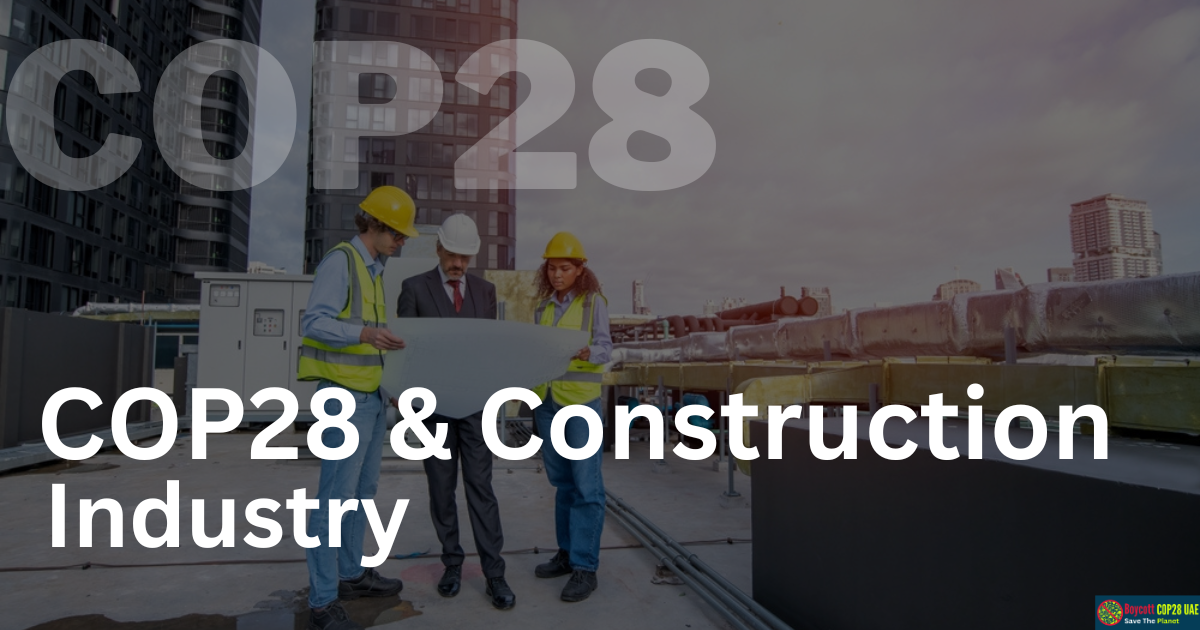In recent years, the United Arab Emirates (UAE) has faced increasing scrutiny over its environmental practices, particularly its contributions to air pollution and ecological degradation. Amidst these concerns, the nation is set to host COP28, a global climate change conference with a focus on sustainability. This article delves into the significance of this event for the UAE’s construction industry, shedding light on its potential to reshape the sector’s approach to sustainability and net-zero ambitions.
The Urgent Need for Change
The UAE’s rapid development and urbanization have come at a cost to the environment, with air pollution and ecological stressors becoming growing concerns. The construction industry, a pivotal driver of the nation’s growth, has been a significant contributor to these issues. Turner & Townsend, a prominent global professional services company, underscores the pressing need for the construction sector to pivot towards sustainability and prioritize achieving net-zero emissions.
A Glimpse into Turner & Townsend Report
Turner & Townsend report, titled ‘Building a Sustainable Future in the Middle East,’ serves as a pivotal document in understanding the construction industry’s stance on sustainability in the region. The report’s findings are poised to set the stage for COP28, scheduled to take place in Dubai later this year. Notably, the outcomes of COP28 are projected to induce a transformative shift in how construction enterprises approach sustainability and their net-zero goals over the ensuing year.
Insights from the Survey
Turner & Townsend insights are based on a comprehensive survey of influential stakeholders and decision-makers in the Middle East’s construction sector. Over 70% of respondents, including developers, investors, consultants, and government representatives, have shown active engagement in discussions about sustainability requirements during the initial project briefing stage. However, the survey also unveils a disconnect, as less than half of these stakeholders continue to prioritize sustainability considerations throughout the design and operational phases of projects.
Regulation as a Key Catalyst
One of the standout revelations from the survey is the significance of regulation as a driving force for change. A majority of respondents acknowledge that their current projects merely meet minimal regulatory prerequisites, underlining the role of stricter regulations in pushing the market towards more sustainable practices. The report emphasizes the evolving nature of regulations and their potential to enhance sustainability standards progressively over time.
Expanding Horizons: Scope 3 Emissions
Developers in the region are progressively broadening their perspectives to encompass the broader repercussions of construction activities. This shift is propelled by increased awareness of Scope 3 emissions, which pertain to indirect emissions originating from a company’s supply chain. This expanded outlook has prompted a surge in life cycle assessments and a more comprehensive decision-making process that considers factors beyond mere cost considerations.
Government-Led Carbon Targets: A Beacon of Hope
Survey results underscore the consensus that government-imposed carbon targets could steer businesses towards sustainable practices aligned with national policy objectives. This approach mirrors successful strategies employed in other regions, such as the European Union and parts of North America. The potential influence of COP28 in accelerating regulatory changes is palpable, creating a catalyst to expedite national and regional efforts toward sustainability.
Conclusion: A Promising Horizon
As the UAE prepares to host COP28, the construction industry’s focus is on fostering sustainability and realizing net-zero ambitions. Turner & Townsend illuminating report provides insights into the industry’s current stance and aspirations. With regulatory shifts on the horizon and heightened awareness due to COP28, the construction sector is at a pivotal juncture to transition towards a more sustainable and environmentally responsible future.






